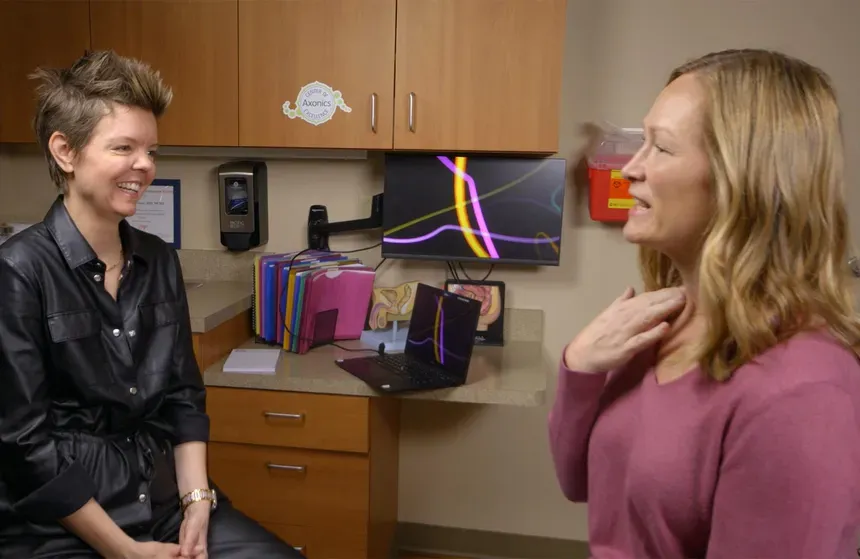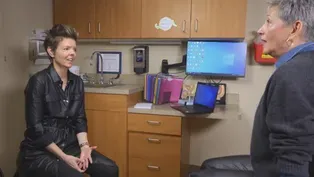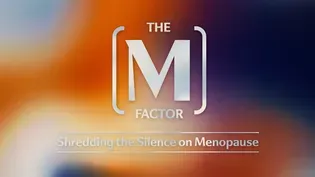
Neuroscientist Lisa Mosconi explains the connection between the brain and estrogen
Clip: 10/17/2024 | 2m 7sVideo has Closed Captions
Dr. Lisa Mosconi explains the effects of loss of estrogen on the brain.
The connection between loss of estrogen and brain function is described by Dr. Lisa Mosconi. Dr. Mosconi urges women to work with neurologists if they are experiencing significant mental decline.

Neuroscientist Lisa Mosconi explains the connection between the brain and estrogen
Clip: 10/17/2024 | 2m 7sVideo has Closed Captions
The connection between loss of estrogen and brain function is described by Dr. Lisa Mosconi. Dr. Mosconi urges women to work with neurologists if they are experiencing significant mental decline.
How to Watch The M Factor: Shredding the Silence on Menopause
The M Factor: Shredding the Silence on Menopause is available to stream on pbs.org and the free PBS App, available on iPhone, Apple TV, Android TV, Android smartphones, Amazon Fire TV, Amazon Fire Tablet, Roku, Samsung Smart TV, and Vizio.

Discussion Guide
For resources, discussion questions, and more, explore the M Factor Discussion Guide.Providing Support for PBS.org
Learn Moreabout PBS online sponsorship- Brain fog is a very weird phenomenon that doesn't even actually have a term in medicine, we refer to that as cognitive fatigue or mental fatigue, where you feel like your brain just won't turn on that everything takes a huge effort and you're having trouble accessing information.
Words won't come to mind, really.
What is really concerning I think, is that these changes can be so severe to prompt fears of either going crazy or being developing dementia.
The purpose of the clinical trial is to test the efficacy of a selective estrogen receptor modulator for hot flashes, but also for support of cognitive function and potentially for prevention of Alzheimer's disease.
And the way that we test this is by working with women who are going through menopause.
Menopause has been historically pigeonholed as an issue with the ovaries, which means that you go to your OB-GYN and OB-GYNs don't do brains, right?
It's not their fault, they're just not trained.
Those are neurologists, psychiatrists, neuroendocrinologist, neuropsychologists, anything with the neuro in there.
We do brains.
Obviously we need to change the framework around menopause where it's understood that there's an ovarian component and the brain component.
From a basic science perspective, there is a lot of evidence that supplementing hormones that ovaries no longer make with hormones that come from the outside has potential to support brain health and even possibly lower the risk of some neurological or psychiatric concerns like depression, anxiety, Parkinson's disease, Alzheimer's disease.
Dr. Kelly Casperson explains how testosterone is useful for menopauseal women
Video has Closed Captions
Dr. Kelly Casperson explains how testosteroe is necessary for menopausal women. (2m 30s)
Dr. Sharon Malone and other experts define menopause and its symptoms
Video has Closed Captions
Experts Sharon Malone, Stephanie Faubion, Somi Javaid, Kelly Casperson explain what menopause is. (2m 10s)
Video has Closed Captions
The first documentary film on the health crisis faced by millions of women going through menopause. (30s)
Providing Support for PBS.org
Learn Moreabout PBS online sponsorship













